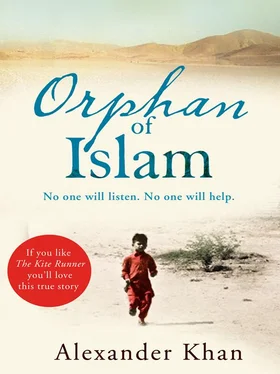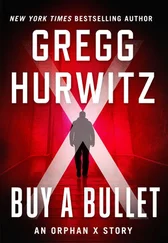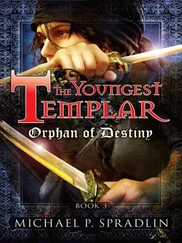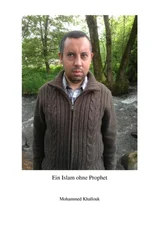Within five minutes Fatima came marching up the street, Rabida behind her, clutching the hands of the little kids we’d left in her care before we set off to the hospital. She was crying hard, but as the nearest of Dad’s relatives in this country, she was second in line to the chief mourner and therefore had work to do. The first job was to organize a very large pot of tea and find as many cups as possible.
The men, including Rafiq, Yasir and Dilawar, went into the front room and shut the door. The women trooped into the kitchen with us children. Chairs were arranged in a circle in the back room while Fatima made the tea. She put her arms around Abida and the two cried on each other’s shoulders, praying to God for Dad’s soul.
News of Dad’s death spread quickly and within quarter of an hour the little house was full of people from the surrounding streets. To us, all the women were ‘aunty’, no matter whether they were related or not. Many of these grieving ladies were gazing at Jasmine and me with pity as we stood bewildered in the back room.
‘God bless them,’ said one aunty, putting her hand on my head and pulling me to her. ‘What have they done to deserve this?’
She squeezed hard and I felt uncomfortable pressed up tight against her salwar kameez. As she released her grip, I was bundled into the folds of another mourner, who asked God to forgive us: ‘Astaghfirullah.’
‘Don’t worry, child,’ she whispered in my ear. ‘You will be fine. You will be looked after. God has willed it.’
In the far corner of the room Jasmine was getting an equal amount of attention. She was being passed from one aunty to another like a precious china doll. Our step-sisters and brother were around, and just as upset as we were, but getting nowhere near the amount of fuss.
‘Oh, Mohammed, God bless you, I’m so sorry about your father. He was a good man.’ A tubby aunty stood in front of me, her hand flat on the top of my head. She smiled sympathetically and wiped away a tear. ‘God bless you both,’ she said, ‘you poor little orphans.’
I stepped back, shocked. Orphans? How could we be? I’d heard the word in school, but had taken no notice of it. It seemed to be something that happened to people a hundred years ago. Then I realized: our Dad was dead and our Mum was … well, where was she? She certainly wasn’t here, and we hadn’t seen her for seven years. Did that mean she was dead too? Was it something they all knew about, but weren’t telling us?
Suddenly I felt very sick, and for the first time that day, my resistance crumbled and I began to cry. This had a chain reaction and soon the tiny back room was filled with women lifting their arms up to God and keening loudly with grief.
Not long after, the front-room door was opened and the men left the house. That room was also full to bursting and they’d decided to find a quieter place. Their way of mourning was to tell old stories about the deceased and make arrangements for the funeral. Under Islamic law the body must be washed, dressed in a shroud and buried as soon as possible, usually within hours of the death. As Dad’s body was to be flown back to Pakistan, however, this wasn’t possible. His funeral would be in two days, followed by immediate repatriation. In Muslim communities, individuals pay into a fund that covers funeral and travel expenses. One family looks after this money and makes all the arrangements when a person dies. The men were obviously going away to discuss this.
Later that day, Rafiq came back to Hamilton Terrace. This was the signal for the women to leave. With final hugs and kisses, plus pats on the head for us, the aunties went home and another chapter in the life of the Muslim community of Hawesmill was closed. Everything would return to normal once Dad had made his final journey to Pakistan. If only that could be true for me …
A worn-out looking Abida began to wash up all the cups and plates, assisted by Rabida. When the last cup was dried, she turned to us, her eyes puffy and cheeks blotched from crying. ‘Go to bed now,’ she said. ‘Today is a very sad day, but tomorrow will be better. Go on – upstairs.’
She kissed us all one by one and ushered us out of the kitchen. The younger ones clung to her, but she firmly but kindly brushed them off and sent them on their way. She probably wanted time alone to reflect. At 10, I had no concept of that and just wanted someone to hold.
‘I don’t want to go to bed,’ I said. ‘I’m frightened. Can I stay down for a bit?’
‘No, Moham,’ she said, ‘not now. It’s getting late. Tomorrow we will talk if you want.’
‘But Ami, I’m scared. Please.’
‘No!’ Rafiq glared at me. ‘Upstairs – now!’
I stood for a second or two, not knowing whether to stay or go. I could feel him staring at me, waiting for me to make a move. When I did turn towards the stairs it was with deliberately slow movements. I didn’t want to disobey him, but neither did I want him to tell me what to do.
I crawled into bed and pulled the covers over my face. Outside, people were still knocking on the door to offer their condolences. Rafiq’s deep voice boomed through the thin walls as he thanked people for their thoughts and advised them to come back tomorrow. I thought about the aunty and her ‘orphan’ reference. Dad wouldn’t want me to cry, but I couldn’t stop the tears from coming. To know that I wouldn’t see his face again was hard enough, but at least he hadn’t made the choice to leave us, it had just happened. What about Mum? Had she had a choice? And if she had, why hadn’t she chosen to keep us? The same questions went round and round until my mind was playing games with itself and my eyes began to droop …
I woke, or at least I thought I did. Dad was in a corner of the room, looking at me. He seemed to be smiling, reaching out his hand. I stared, blinked … Then he was gone.
I screamed, jumped out of bed and ran downstairs.
‘Dad’s in my room! Ami, Daddy’s in my room!’
Abida was sitting in the kitchen, nursing a cup of tea and talking to Rafiq.
‘Ami, please!’ I pulled at her sleeve, wanting her to come upstairs and take away the nightmare I’d just had.
Rafiq was having none of it. He grabbed me by the neck before Abida could stop him and hauled me up the purple-carpeted stairs.
‘I’ve told you once,’ he hissed, ‘and I won’t tell you again. Into bed, go to sleep – or else …’
He pushed me into the bedroom and slammed the door.
I really didn’t want to be back in there and immediately turned the light on. The others began to wake up, their tangled little heads rising up sleepily from warm pillows.
Rafiq flung open the door and pushed me hard up against the wall. ‘Get to sleep, you bastarrd,’ he snarled at me, the ‘r’ of the last word rolling off his tongue.
‘No way!’ I screamed. ‘I want to come downstairs. I’m scared. I want Abida. I want my dad and my mum. I want them!’
Rafiq let me drop to the floor, walked across the room and turned off the light. Then he came back towards me.
‘I warned you, you little bastarrrd,’ he said.
He pulled me up again and slapped me as hard as he could across my cheek. The blow knocked the breath right out of me and I slumped against my bed. Then he left the room.
His violence had worked – I was no longer screaming and crying. I was too shocked to react and I sat against my bed for what felt like hours as the force of the blow seeped into my whole body, filling me with fear, shame, embarrassment and anger. I couldn’t understand why he’d lashed out like that, but from that moment onwards I knew that nothing in my life would ever be the same again.
I slept under the bed that night, terrified that I might see Dad again and scream, making Rafiq come tearing up the stairs again.
Читать дальше












